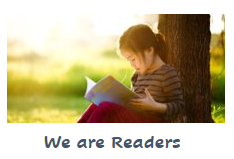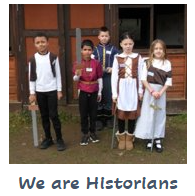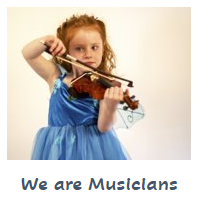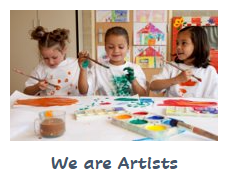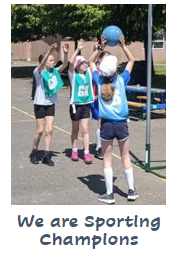'No Learner Left Behind'
Intent
At Long Lane we provide a curriculum for all that aims to purposefully challenge, motivate, inspire and hold relevance for our pupils and the local context in which the community shares. We believe that good learning sits within the triangle of providing a broad and balanced curriculum, assessment for learning and quality first teaching, ensuring that there is access for all. Through our carefully planned progressive curriculum our children are able to reach their full potential so that they know more, remember more and understand more in order to become lifelong learners after they leave us, ready for the next level of their school journey.
Challenge, Motivate, Inspire
At Long Lane we believe that every child has the potential to excel from where their starting points are. We ensure that our curriculum provides challenge and support in equal measure and is inclusive of all types of learners, therefore providing a variety of learning approaches and styles. Staff understand the different strengths of pupils and plan motivating tasks and experiences with this in mind using scaffold and challenge where appropriate.
Relevance and Purpose
High Quality Texts that are tailored to the school, local context and wider world are a poignant part of our curriculum design and ensure that children are inspired through relevance and purpose. We ensure that texts are current, reflect the demographic of our pupils and are purposeful to the desired outcomes. It is important that pupils see themselves represented so diversity is a top priority in the learning experiences that we provide. It is important that children see the purpose of what they are learning and how this relates to the wider world. We refer to children as Scientists, Musicians and Artists and provide experiences such as; careers days so that links and purpose are explicit. Subjects are delivered independently with links between units of work where appropriate. This means that each subject can focus on the knowledge and skills required. This is enhanced by inspiring visitors and visits that help cement knowledge to add purpose.
Creative and Active
At Long Lane we believe that children learn best through carefully planned experiences and investigative approaches that allow pupils to use creativity and encourage critical thinking and problem-solving skills to learn and retain knowledge, skills and understanding. Teach Active and other supportive approaches are used (particularly in English and Maths) to ensure that all pupils are engaged in the learning and are able to solidify the learning intended. Across the school are dedicated areas to outdoor learning (marked by zones) to ensure that children have the opportunity to learn in an active way whether through a structured teacher led activity or through child-initiated learning.
Evolving
We believe that our curriculum is an ever-evolving approach and is regularly reviewed to ensure best practice and approaches are current. This process takes into consideration; the community with which we exist, prior knowledge and experiences, educational research and the National Curriculum. We build on prior knowledge and have spent time ensuring that the curriculum has cohesion across the school and between each subject, providing a clear journey to maximise knowledge, skills and understanding within the specific subjects. We use a spiral curriculum that both holds a consistent thread for learning (through language, teaching approaches and expectations – see teaching for learning policy) and space for creativity.
Implementation
Our school's ‘curriculum’ is all the planned activities that we organise in order to promote learning, personal growth and development with special emphasis on the basic skills of literacy and numeracy. It includes not only the formal requirements of the Early Years Foundation Stage Curriculum and the National Curriculum 2014, but also the various extra-curricular activities that the school organises in order to enrich the children's experience. It includes the 'hidden curriculum' – what the children learn from the way they are treated and are expected to behave. We want children to grow into positive, responsible people, who can work and cooperate with others while at the same time developing their knowledge and skills, in order to achieve their true potential.
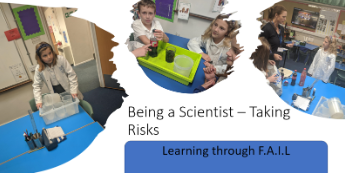
Our curriculum is broad and balanced, providing a wide range of knowledge, skills and experiences, giving each skill-based theme sufficient time to contribute to the children’s learning. The planning process is central to the effective delivery of the curriculum. Planning takes into account the key skills and foundational concepts required in each subject by the National Curriculum as well as children’s interests. The main emphasis of planning in the school is to ensure the curriculum builds on prior learning, enabling children to be fully prepared for the next stage of their education.
The needs of individual children are met through a scaffolded approach, adapting support so that all can achieve at a high level. Learning opportunities at home, when appropriate, will reinforce or extend class teaching.
Through the delivery of the policy the children will have opportunities to:
- Apply and transfer skills and knowledge across all areas of learning.
- Acquire and develop knowledge, understanding and skills as set out in the programmes of study.
- Revisit prior learning through low stakes retrieval practice.
- Develop proficiency, confidence and an appreciation of the use of Information Technology (IT) to enhance their learning.
- Learn collaboratively and independently and in so doing reflect on their own and others’ outcomes to develop and understand their next steps.
- Learn from visitors to the school and visit learning environments appropriate to specific activities.
In order to ensure the best quality teaching, staff incorporate Rosenshine principles into their teaching with a focus on experience led inquiry, scaffolding and challenge activities that promote independent learning. Staff use assessment for learning to review and plan integral learning paths for individuals so that misconceptions are dealt with in a timely manner.
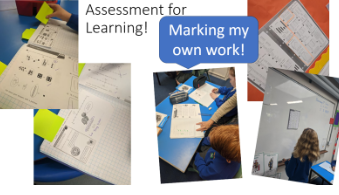
EYFS – At Long Lane it is important to us that our curriculum is integrally linked with where the learning journey starts and our Early Years Curriculum. This is evident in our active and creative approach to learning, and the links that all our subjects have to their roots in the Early Learning Goals.
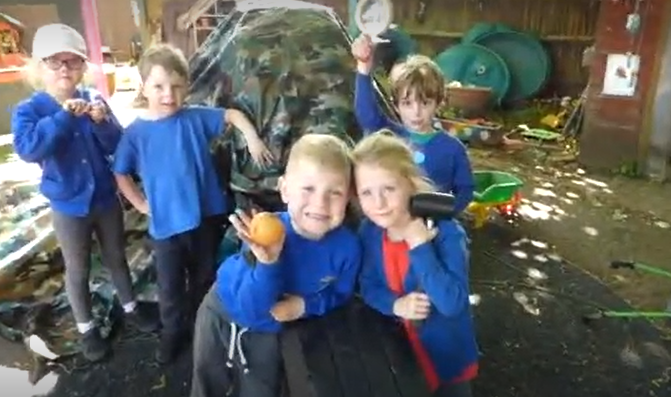
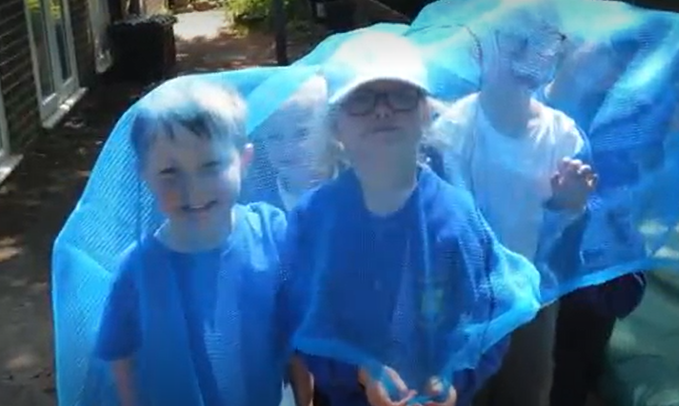
Metacognition and Secrets of Success – A high emphasis is put on metacognition and growth mindset at Long Lane and pupils are familiar with the process of how to improve their learning skills as this is integrated through each subject, lesson and aspect of school life from Maths to active play and friendships. Pupils are taught through each lesson how to support independence in their learning through the 7 secrets of success. This is consolidated in assemblies and celebrations with the class and whole school. Link to more detail - Secrets of Success at Long Lane
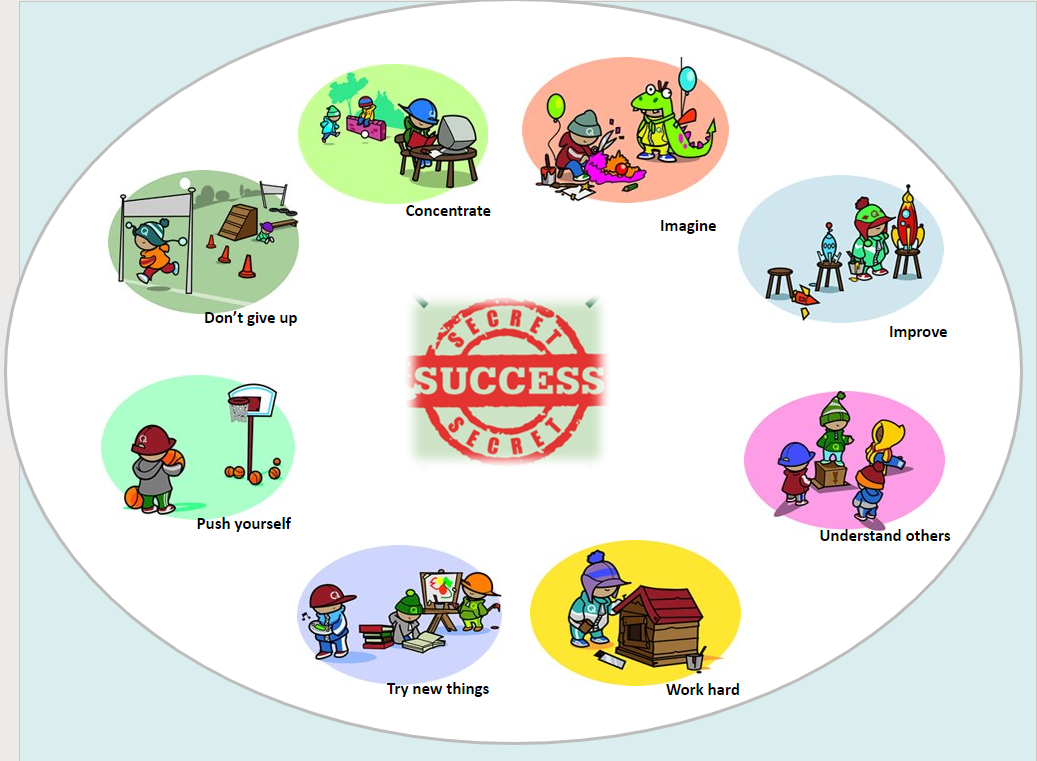
Outdoor and Active Learning – At Long Lane we provide a variety of outdoor experiences that are both structured and support creative and active learning. This starts with our youngest children where Rainbows have their own learning garden full of practical and engaging challenges. We extend this active learning into Y1 and Y2 with our bespoke continuous provision offer which allows children to remain active and creative learners for a proportion of the day. Both Y1 and Y2 have their own active outdoor learning areas. For the rest of the school, it is an essential part of our learning offer that all children are provided with opportunities for outdoor learning to continue into their unstructured time. During play and lunch children have access to a range of outdoor activities such as; Den building, creative areas, nature and music and building in our vast grounds. We actively encourage and actively teach creativity, risk taking, problem solving and team building (including conflict resolution) through this provision.
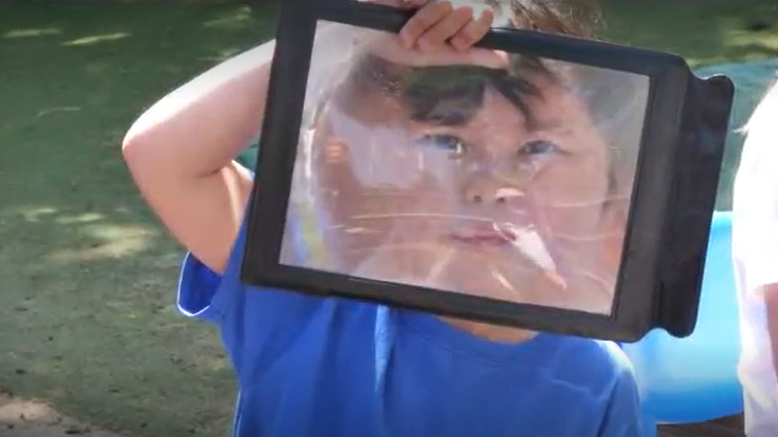
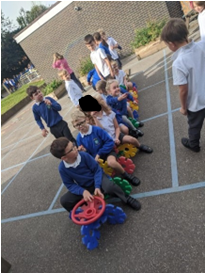
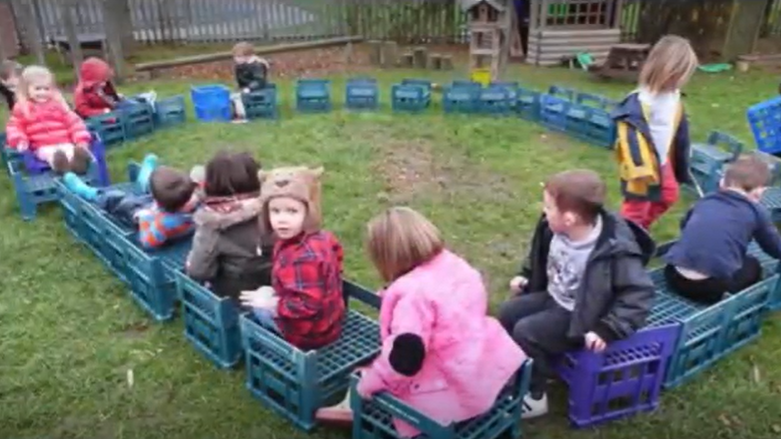
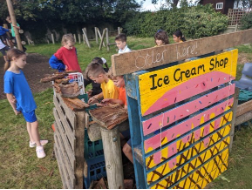
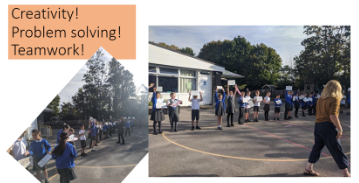
These are the essential tools upon which will be developed a multitude of learning experiences. All the requirements of the 2014 National Curriculum are adhered to for English, Maths, Science, Computing, Design Technology, History, Geography, Music, Art, PE and MFL (Modern Foreign Language) with additional time set aside for PSHE and Citizenship.
We feel that this approach enables us to balance the delivery of the statutory curriculum with the wider needs of all children. Please see our Curriculum Policy for further information.
At Long Lane Primary learning is:
- Acquiring, developing and applying knowledge and skills
- understanding through the combination of applied skills and inquiry
We have seven classes. We employ a system that divides these classes into three areas: Infants, Lower Juniors and Upper Juniors. In the Infants we operate one Foundation Stage class, one Year 1 and one Year 2 class with thei own class teachers. In the Lower Juniors, we run one Year 3 class and one Year 4 class. The Upper Juniors consist of one Year 5 class and One Year 6 class with their own teachers. Teaching Assistant support is provided according to identified need.
Phonics and Reading Schemes
In key stage 1 we use the Read Write Inc phonics scheme. Please see our Phonics and Spellings page for more details.
Further through the school we use 'Accelerated Reader' to support children's fluency and comprehension skills. Please see our English Policy for further details.
Maths
We take a Mastery approach to mathematics and ensure that pupils have access to a variety of models, concrete resources and abstract problem solving. We follow a structured calculation policy acroos the school for cohesion.
Home Learning
It is the normal practice that children will be set tasks to undertake at home. Tasks will vary according to the needs of the child and will not necessarily be written assignments.
We provide a range of ICT apps and tools to support children’s learning that can be accessed at home. We provide curriculum maps for each class so that parents/carers and pupils can research and become familiar with ideas and concepts at home.
It is important for pupils to have time to revisit and overlearn concepts and skills outside the classroom, in a ‘real life’ context or to spend time tackling misconceptions from their learning. Please ask your child’s teacher how you can best support your child at home with this.
Parent Progress Reports - In Autumn and Spring Term, parents or guardians are invited to meet the teachers to discuss their children’s progress and any other matters they wish to cover. A written report is provided for parents at the end of the school year and is sent out in the summer term. There is an opportunity to discuss the contents of the report with the Class Teacher if necessary. There are a number of other opportunities to support children's learning in school and at home.
Home Learning Exhibitions are set up at parents evenings (with a focus) as a drop in advice and support for home learning and working with your child at home.
Parent Learning Tours - These are an opportunity for parents to have a learning tour around the school and see classes and learning in action across the school. Parents will get an opportunity to talk to Learning Ambassadors from each class who will be happy to talk through their learning process with you.
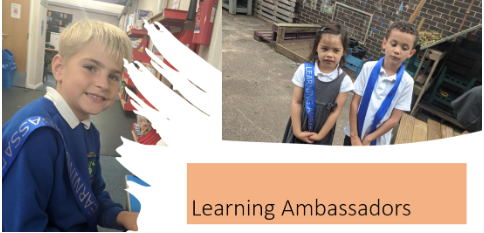
Please click here to see our - Pupil Opportunities at Long Lane
Teaching for Learning Policy
Intent
The aim of the Teaching for Learning Policy is to make explicit the shared and agreed principles and practices upon which teaching and learning are based at our school across all areas of learning.
We aim to develop a ‘love for learning’ where every individual is valued for their unique contribution.
We aim to provide pupils with the knowledge and skills needed to become successful learners who are confident, inquisitive and independent: ready to embrace local and global challenges.
At Long Lane we value a growth mindset and understand and promote the metacognition of learning.
At Long Lane Primary School learning is:
- Acquiring, developing and applying knowledge and skills.
- Understanding through the combination of applied skills, knowledge and discovery.
- Developing the language of learning through oracy
- Developing metacognition through a growth mindset and the Secrets of Success
- Active, challenging and engaging – through practical, relevant and immersive tasks
- Scaffolded to support and broadened to extend
- Assessment for learning
Learning in our school is a collaborative process between adults and children; between school and home. Formative assessment lies at the heart of this process.
Each child has an entitlement to a curriculum which offers the maximum opportunity for development; is well resourced and takes place within a stimulating and nurturing environment.
We will follow the Early Years Foundation Stage (EYFS) Statutory Framework in Reception. (Please refer to the Early Years policy for more information).
The requirements of the National Curriculum, for Key Stage 1 and Key Stage 2, will be met through integrated and subject specific schemes of work, as appropriate.
In order that children reach their full potential, Teaching for Learning should ensure that each child:
- Develops interest and motivation in their work.
- Derives satisfaction from a sense of achievement.
- Has the confidence to challenge themselves.
- Is offered a balanced, ambitious and broad curriculum with opportunities to deepen learning.
- Has equality of access to the curriculum.
- Experiences continuity and progression in their learning.
- Is supported and challenged.
- Experiences a range of learning methods.
- Is involved in both integrated and subject specific activities.
- Works individually and as a member of a group.
- Has their progress monitored and recorded.
- Receives frequent, relevant feedback (see section 7).
This policy statement and the curriculum overviews will provide a framework for each teacher to plan on a termly and weekly basis for the needs of the children.
Implementation
Teaching for Learning Guidance and Procedures
“Strive to Succeed”
1. Expectations
Set high expectations and give every learner confidence that they can succeed.
2. Learning environment
Create an ethos and environment in which children can enjoy learning, reflect, feel safe and secure, improve and grow in confidence, is fundamental to learning and, therefore to our school. Care is taken to ensure that displays are purposeful and support learning without creating an overly stimulating learning environment which some children may find it difficult to work in. We ensure that all children have the opportunity to display, present and publish the work they are proud of at some time during the year.
As a school we will have classroom environments that support the child, Teaching Assistant and Teacher in the learning process and celebrate learning.
We will do this by ensuring that each classroom has:
- Clearly labelled resources which children can access independently.
- Displays showing children’s work, supported by key questions.
- Displays that are interactive, support learning and demonstrate the use of key vocabulary as well as celebrate
- Interactive tables / areas- displaying equipment and resources, where appropriate.
- A balance of displays representing the diversity of the class and our society. E.g.-photos and maps.
- A visual timetable
- Displayed near the computers the Internet use - Code of Conduct, (age appropriate).
- A display of the Class charter (Jigsaw).
- The School Vision displayed.
- ‘The Secrets of Success’ displayed
- A display of the ‘learning zones’
- Working walls to support specific subject learning
3. Classroom management
Children should be taught to respect their environment and keep it tidy. The children should be supported to:
- use resources independently and to tidy up afterwards.
- understand the school behaviour expectations.
- be a team player within their house.
- aspire to be class monitors, to do jobs and to tidy and care for the room and equipment.
- practise lining up and moving around the room safely.
- stop and listen and understand any signals used.
- raise their hand/use an agreed non-verbal signal if they wish to speak to an adult in class or assembly.
Where possible and applicable to the learning, groupings of children should be varied throughout the day e.g. - ability based, mixed ability based, individual, pairs, small groups, larger groups, mixed gender-based groups, etc.
4. Routines
Children will enter classrooms from 8:45am with the school day beginning at 8.55am. This short period of time should be used by the children to get ready for learning.
Children should be encouraged to self-register and make their lunch choice. These must be completed by 9:00am.
At play and lunchtimes, the hand bell signifies the end of play. The first bell instructs the children to stop and the second to walk quietly to their line. Children will be accompanied back into school from the playground by the adult on duty: teacher/teaching assistant/lunchtime controller. Upper Junior children can walk independently back into the classroom as an alternative. Staff will meet children at the classroom door.
At Lunchtime:
- All children will eat in the hall (weather dependent in a designated space in the playground)
- All children are able to mix together freely in the playground and field
- The playground and field areas will be zoned to support different interests and hobbies
- Children will have opportunities for further learning through play using equipment to support imagination, problem solving, working together and risk taking (knowing safety rules)
- Designated rooms will be open for inside activities (supervised by an adult or Y6 leadership programme/Wellbeing ambassadors)
- Children will be able to enter the building during lunchtime with permission only (collecting a band from an adult) for; first aid, toilet, quiet time, club
At the end of the school day:
- Reception and KS1 and lower KS2 will be collected from their classroom by a parent or carer.
- KS2 will be collected from the playground by a parent or carer.
- In Year 5/6 parents can choose to allow their child to walk home on their own.
- If parents are late to collect their children, they are taken to will be collected in the main foyer where they will be supervised.
- Children attending after-school club must go straight to the library for registration.
- Children attending other clubs must go straight to their designated area.
5. Planning
There are three kinds of planning detailed below: a) Curriculum overview, b) Schemes of work and c) Lesson plans
a) Curriculum overview
The National Curriculum 2014, for all statutory subjects, Berkshire Agreed Syllabus for RE and ‘Jigsaw’, for PHSE & C, provides detailed guidance on: expectations, Learning Objectives, possible teaching activities, resources, approximate time and progression for all year groups from Year 1 to Year 6. Reception follow the Early Years Foundation Stage Framework (2021).
The school produces a curriculum overview which breaks up the curriculum areas for all three key stages (FS, KS1, KS2 -Lower and Upper) into manageable termly blocks. This ensures breadth and balance in curriculum provision and continuity and progression from term to term and year to year.
Planning is discussed by all teachers in order to ensure continuity and progression but to also develop ideas. Teachers should take the learning entitlements and objectives from the National Curriculum and the Curriculum Companion documents as appropriate, to inform planning for each subject area and turn these into programmes of work for each term, mapping out what needs to be done week by week in order to achieve these goals. Consideration should be given to creative cross- curricular links and to where learning is to be revisited to deepen understanding and aid long-term memory.
The plans should include notes on:
- Statutory assessments.
- Non-core assessments. i.e. RWI, PUMA, PiRA, VR, NVR etc.
- Themed weeks.
- Planned educational visits.
- Parental engagement opportunities and wider community links
Teachers need to keep a copy of their Curriculum overview in their teacher’s file for monitoring by Head, Deputy Head, Team Leaders and subject coordinators.
b) Schemes of work
Teachers should use schemes of work to construct their lesson planning.
We sometimes use the Chris Quigley Curriculum Companions to create planning for:
- Art
- Design Technology
- History
- Geography
We use the following published schemes of work to support our planning for:
- Music - Charanga
- Italian – Elisabetta Balleani (visiting Italian teacher)
- PE – Complete PE (support from Liam Bint – sports coach)
- RE – Pan Berkshire Scheme/Jigsaw Discovery Scheme
- PSHE – Jigsaw Scheme
- Phonics & Spelling – Read, Write Inc.
- Handwriting - Nelson
- Computing – Teach Computing
(Please see more detail on Foundation Subjects through appendices in Curriculum policy)
Maths/ English/ Science
Please refer to the guidance in each policy.
c) Lesson planning
Teachers may need to adapt their planning on a daily basis to reflect the needs of the children in their class. Lesson planning should be shared with Teaching Assistants and should be a working document used to plan and assess children continually. These plans should reflect the schemes of work but can be in any form the teacher decides.
The lessons plans should:
- Turn the learning objectives from the schemes of work into the actual teaching and learning activities that will take place including broadly differentiated activities which meet the learning needs of the pupils.
- Include clear success criteria; the expectations of exactly what the children have to do in order to achieve the learning objective.
- Be annotated to reflect SEND (including lowest 20%)/ EAL/G and T greater depth provision for each class e.g. SAP targets (This can be found in the Class Needs Analysis provision document).
- Detail how any adult support will be used e.g. TAs
- Be annotated -recording any changes that have occurred, work not covered, and notable attainment during the lesson ie. Children exceeding/not achieving the learning objective.
- Detail how the adults’ time will be used e.g. to work with a particular group.
- Include a range of questions (closed, open, enquiry-led etc)
- List essential vocabulary for each lesson.
- Detail resources required.
- Be available for supply teachers or HLTAs to follow and for monitoring by Head, Deputy, Team Leaders and subject coordinators.
- Include a review of prior learning from both recent lessons and earlier in the year or previous years.
6. High Quality First Teaching
The teacher is responsible for ensuring the following:
- Confident teacher knowledge and understanding of the subject matter to be taught
- Pre-planning of tasks, activities, pupil grouping arrangements and resources
- To support metacognition, a clear statement to pupils of the intentions of the session i.e. a clear explanation of the learning objectives of the lesson. (The learning objective must be shared verbally or clearly written up on the board, but this does not have to be at the beginning of the lesson, it can be when appropriate)
- A clear explanation to pupils of the activity and expected outcome through the use of the success criteria and effective modelling (including of the thought process).
- Effective teacher input which ensures good pupils understanding (e.g. Use of images and practical activities to support explanation / understanding, ensure that key ideas and words are shown on the board / flip chart for referral).
- Appropriate pupil work; activities which help pupils explore, develop, practice and retain the new learning to achieve the learning objectives.
- Scaffolding and direct teaching until pupils are confident to work independently
- Thorough resourcing of such activities (with additional resources to support some pupils/ stretch others).
- Consideration of needs to have been given to the needs of different pupils e.g., ensuring the more able are stretched and less confident are supported.
- Time targets may need to be set to ensure pace. Children should be reminded of this at appropriate moments.
- Expectations of pupils’ work need to be made clear e.g. quantity of work, presentation, other qualities pupils should be maintaining in their work.
- Prompting children to decide where their learning will fit into the zones of learning will establish the amount of effort they are aiming to give in any task and reinforce our Growth Mindset ambitions for all (see addendum).
- Attitudes to learning or “The Secrets of Success” should be reinforced to children. The 8 skills and habits, as detailed below, will enable them to develop into successful learners, successful friends and success in their adult life (see addendum).
- During the lesson, teachers should give consideration to:
- Checking that the introduction and the tasks being worked upon are proving appropriate to the different needs of different pupils
- Working with/alongside particular pupils to support / stretch them
- Assessment of pupil’s progress
- General circulation around the class to check everyone is successfully on task, or to assess pupil performance and to support and give immediate feedback is encouraged.
- A mini plenary to address misconceptions if necessary or to share good examples referring to the success criteria.
- Activities should be reviewed - reinforcing the learning which it is hoped will have taken place
- Assessment for learning such as; live marking and instant feedback, putting in support for tackling misconceptions and pre-learning to support engagement
- Reflection – Not all reflections have to be written, they can be done orally through activities such as simply by sharing with a partner. It is the act and language of reflecting that is important rather than the recording of it.
Prior learning will be revisited at regular intervals to support the retention and recall of information.
- Formative Marking and assessment procedures which inform both pupils and teacher of what has been achieved and what needs to happen next. This could be during the lesson or retrospectively.
Depth of learning
Consideration should be given to children’s prior learning when planning. The following terms are used to understand where learning should be pitched and what the next steps for learning should be.
|
|
Basic level of learning |
Advancing level of learning |
Deep level of learning |
|
Description |
Instructional, modelling, heavily dependent |
problem solving interpret; categorise; organise; classify and compare reminders and guidance will still be needed and there is greater cognitive (thinking) challenge.
|
more complex and abstract problems/tasks, perhaps requiring many steps and which may have many possible solutions. explain concepts; investigate; hypothesise; design; create; prove and use evidence and reasoning to support ideas.
|
|
Definition |
Learning something for the first time |
begin to deepen your understanding and gain in confidence and skill,
|
higher order thinking skills are needed. Learners are able to be more independent in their thinking, need little support
|
Impact
7. Feedback /marking / observations (Assessment for Learning)
- Feedback/marking/ observations are the teacher’s day to day / week to week means of assessing pupil progress and, thereby, of planning work to meet pupils’ needs.
- Feedback/marking/ observations, therefore, are a part of assessment and inform future planning and teaching. Plans can be annotated rather than marks made in each child’s book to show how groups or work is to be re-arranged for the following day(s).
- Children found not to be making expected progress will be targeted for additional support/scaffolding to ensure they ‘keep up’ (typically less confident 20%). This will happen day to day and also through Pupil Progress Meetings using the Class Needs Analysis tool.
- Where teachers mark children’s work, they should mark clearly in a different colour to the child’s work, using a purple pen.
- Feedback/marking/observations will celebrate success whenever possible in order to raise self-esteem and encourage all children to work to their full potential. Work may be taken to other teachers for further praise and encouragement.
- Feedback/marking/observations will relate to a clear learning objective.
- Some pieces of work may be marked with a single tick or an appropriate stamp to show that the learning objective has been met.
- Incorrect spellings may not always be corrected.
- Presentation may be marked if the written work exceeds the expectations, there is an improvement or it needs addressing.
- Teachers may choose to ‘focus mark’ or ‘live mark’ or involve children in the marking process
- Children need to receive frequent regular feedback for their learning in Maths, English and Science.
- Self and peer marking can be employed to provide immediate feedback to children.
- Verbal feedback is key – When teachers use good verbal feedback strategies, it saves time and boosts pupils’ engagement; from a study by UCL Institute of Education (2019)
- Formative marking, including verbal feedback, should be given regularly and when appropriate for each child. By the end of Y1 – children respond to formative marking when appropriate and with guidance. By the end of Y2 – independently for most children.
- Formative marking (including verbal feedback during a lesson) at Long Lane is;
S - 1 star, e.g. one aspect which has been done particularly well - this should be starred * in the work itself or the objective ticked.
D or Q - 1 wish, e.g. one area that they need to develop or 1 activity which relates to moving their learning on, e.g. a question, a task, a try this, etc. which is written in a bubble.
You can substitute the letters “S”, “D” and “Q” for symbols or words such as; next, now try this etc. If given during the lesson, then a ‘G’ or verbal feedback stamp may also be used.
- As feedback is given in the core subjects each lesson, children need to be given the opportunity to read and respond appropriately.
- Therefore, children should be given classroom time to respond to the teacher’s feedback/ marking, where appropriate. Children will respond to written comments either during a lesson or at a specific timetabled time.
- For all other subjects feedback will be relevant to the task and clearly linked to the learning objective. Teachers should use their judgement in how detailed this feedback should be.
Marking Code
Sp or _____ ….. Spelling to be looked up and corrected
R ….. Use ruler
C ….. Check work/correction
A circle drawn ….. Shows where a piece of punctuation is either inaccurate or missing
..... Word missing
….. An action that the children need to respond to Completed work
G (Guided work - adult led)
I (Independent work)
P (Partnership work - collaboration)
8. Presentation
- From reception, all pupils should be taught to hold writing tools correctly, to sit properly and to hold their book or paper at a suitable angle.
- The use of rubbers will depend on the aim of the lesson, e.g. in Maths and handwriting lessons they should not be used, whilst in work being prepared for presentation they may be used.
KS1
- KS1 pupils should write with a pencil.
- KS1 pupils are encouraged to develop and use a joined cursive script, following the Nelson handwriting programme.
- All work should be dated, with children dating work themselves when appropriate.
KS2
- All work is to be dated. In Mathematics, Science, topic and D.T. it may be written in numbers, e.g. 12/11/19, whilst in other subjects it should be written in full, e.g. Tuesday 12th November 2019.
- The date may be included with the learning objective that is on a sticker if used.
- Key Stage 2 pupils may choose to use a handwriting pen for written work.
- KS2 pupils are encouraged to use a joined cursive script, following the Nelson handwriting programme.
- When working in books, a line will be drawn using a ruler at the end of one piece before commencing the next.
- In maths, pupils should work in pencil. One digit should be put in each square.
- Pupils entering the school in the later stages with a clear, legible, joined handwriting style will not be expected to change their style.
Monitoring and Evaluation
- Teachers plan and evaluate their own class provision through the Class Needs Analysis tool. This document outlines a context for their class (including percentages of vulnerable groups, strengths and weaknesses of the cohort), allows the teacher to plan provision (including focus groups) for the term and evaluate the success of this class provision.
- This tool is used to evaluate (with data and progress focus) at Pupil Progress Meetings that are held once per term
- This is an ongoing process of ‘Plan Do Review’ that highlights not only High Quality teaching provision but also flexible groupings, targeted support and specific intervention
9. Home Learning Expectations (currently under review)
Home Learning is optional in KS2
|
|
Key Stage One (KS1) Year 1 & 2 |
Key Stage Two (KS2) Year 3, 4, 5 & 6 |
|
Reading
|
A minimum of 10 minutes daily with an adult (adult to sign in the Reading Record on each occasion), with children being encouraged to re-read books (up to three times). |
Y3/4 A minimum of 10 minutes daily with an adult. The adult to sign in the Reading Record on each occasion. Children being encouraged to read books twice. Y5/6 A minimum of 10 minutes daily at home. Reading records to be signed by an adult daily. |
|
Home Learning |
Given out at the beginning of each half term; tasks are topic related. All home learning is recorded within a home learning book which is taken home.
Home learning may be provided on an individual basis to support specific learning needs. |
Given out at the beginning of each half term; a range of maths, English and topic related tasks. Children choose which tasks they complete according to the criteria given, e.g. two maths tasks, two English tasks and one topic task. Home learning is marked at the end of the theme (end of half term). All home learning is recorded within a home learning book which is taken home and brought into school on a Friday.
|
Appendum
Growth Mindset
Secrets of success
|
Linked policies: Maths English Science Early Years Assessment and record keeping PHSE & C E-safety SEND Behaviour Off-site activities Length of the school day Anti-bullying Shared learning Uniform Collective worship
|
Linked documents: Home-School Agreement Teaching British values Berkshire Agreed Syllabus for RE Jigsaw PHSE & C
Curriculum Essential Opportunities:
|
Please click here to see our - Pupil Opportunities and Cultural Capital


